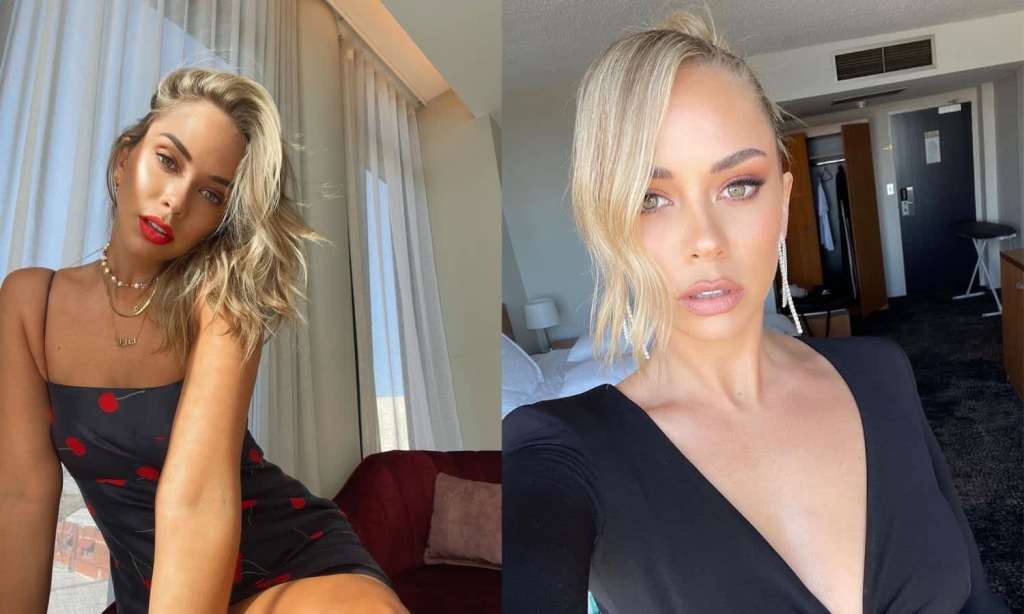When it comes to the world of celebrity, finstas—that is, private Instagram accounts of the rich and famous—are nothing new.
While everybody from Prince Harry to Bella and Gigi Hadid, are rumoured to have enjoyed a private online presence, in recent months the trend has migrated away from Hollywood’s A-list celebrities and made its way into the world of influencers.
For a culture built off sharing every intimate detail of their days, drawing boundaries and creating accounts to share the ‘real’ view of an influencers’ life seems blatantly contradictory. But for Tully Smyth, a staple of the Australian influencer scene with a following of over 200,000 people, her finsta isn’t so much about leading a double life as it is about leading a less curated one.
“I’ve always loved photography and find so much beauty in nature or a beautifully set table, but I realised a long time ago nobody who follows my public account cares about that stuff. They want to see me in a bikini. Me at some fancy event. Me hanging out with other influencers,” Smyth says, adding another key reason behind the growing trend of finstas, is the incessant abuse and harassment influencers face on a daily basis.
“When you share something with good intentions and it gets twisted and flipped and thrown back in your face or pulled apart and ridiculed it’s emotionally draining. So I guess some of us are at a point now where it’s like “well, I just won’t share as much then.”
Megan Pustetto, pop culture expert and host of the So Dramatic! podcast, says the issue is a complex one due to the unique nature of an influencer’s fame.
“When someone has built their brand off [sharing personal content] I think they have a responsibility to their audience to be authentic,” Pustetto says. “I’m following them because I want to see them and see that real person. But if they feel the need to have two separate identities and two separate accounts for that, then is it fake? Is it just a persona?”
She adds, “With actors, it’s their job to act. With influencers, it’s their job to share. So if they’re not doing that they’re not really doing their job. Nicole Kidman is an actress, she doesn’t actually have a responsibility to share anything with us; she can just be an actress and exist.
“Whereas, if somebody like Kim Kardashian turned around and said she’s not going to share anything anymore, people would feel a bit ripped off and betrayed. And I think that’s the same with influencers when they’ve built their brands off sharing their lives and then are like, ‘actually, I’m not going to share this part with you.’ It’s like they want to have their cake and eat it too,” Pustetto says.
When it comes to social media’s algorithm for success, there’s a clear correlation between intimately personal content and follower growth. Teary-eyed videos about a breakup, or battling with an undiagnosed medical condition, for example, tend to outperform a video of a walk along the beach; just as makeup tutorials or posts on major life events are known to outperform somebody live streaming their late-night study sessions. This is no great revelation to influencers, who have long since cracked the code on how to optimise online content for its full potential, but it does create restrictions.
“I want to be able to share five photos of my boyfriend in a row and not worry about whether that’s “boring” to some people or whether I’ll lose followers,” Smyth says, adding, “I feel very lucky to do what I do, and I love connecting with people from all over the world via my social media accounts. It’s honestly the best part of my job, even better than the freebies and the travel, but it’s also nice to keep some things for myself.”
Smyth describes herself as “super strict” when it comes to her private account, saying, “I’ve got people I see semi-regularly sitting there in my follow requests but I’m keeping them there because I can’t be 100% sure they won’t screengrab something and send it on. I’ve added people on a night out because they were next to me, asking about it and I felt pressured and then woken up the next morning and swiftly removed them because I just didn’t feel comfy with the idea.”
Pustetto argues, though, that while a desire for some privacy is understandable, the decision to filter information across multiple accounts isn’t just an ethical challenge, it also poses huge risks to young followers who are easily influenced and “only the good bits”.
“I get the need for privacy,” Pustetto says, “but [with finstas] it’s almost like leading a double life. It should be the good, the bad and the ugly, not just the good. It’s dangerous to their young followers to think that’s who these people really are, and it has a negative impact on their mental health in thinking they’re not good enough.
She adds, “If influencer culture is built off people sharing their lives with us and they’re not actually sharing their real lives with us, then what are we following them for?”







